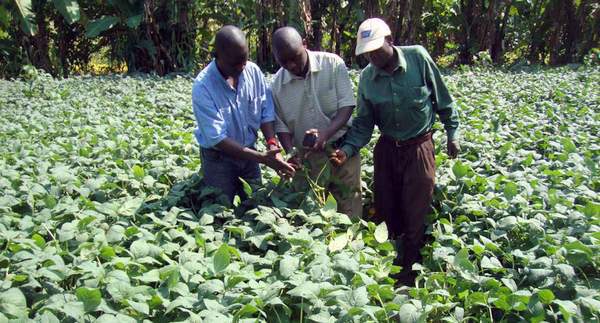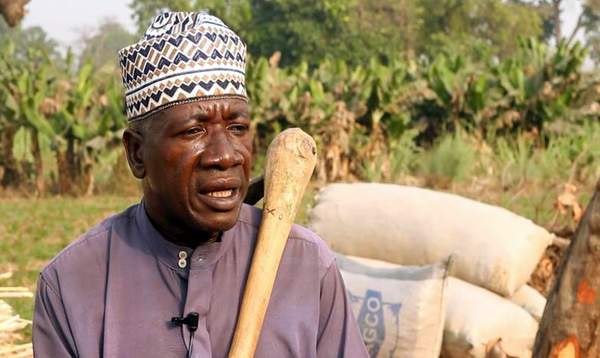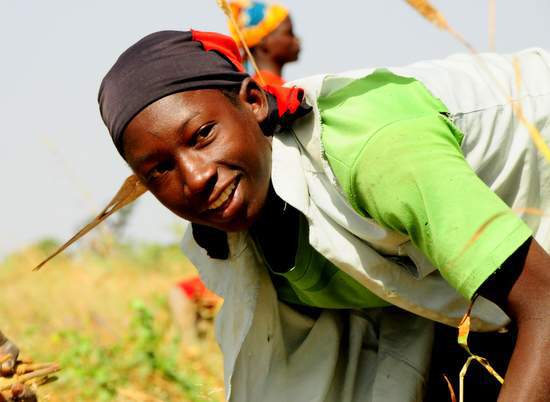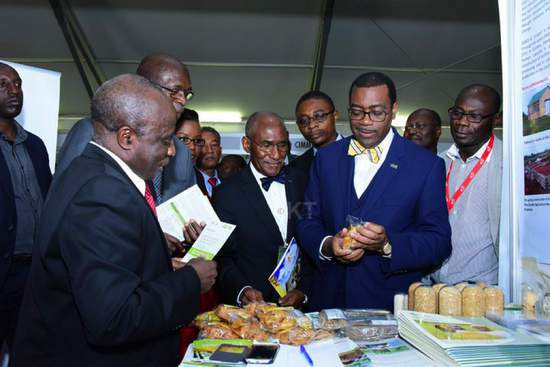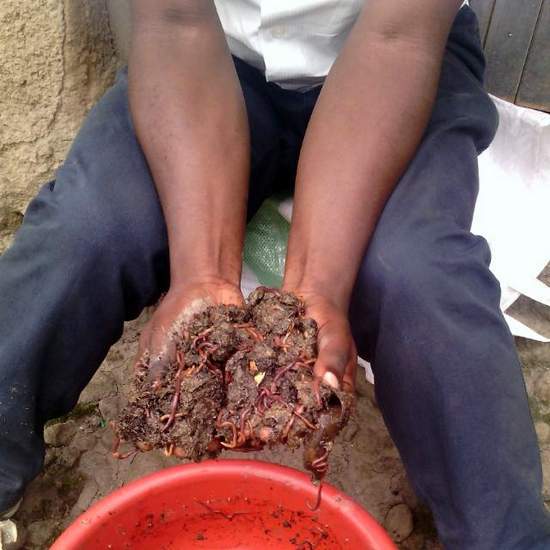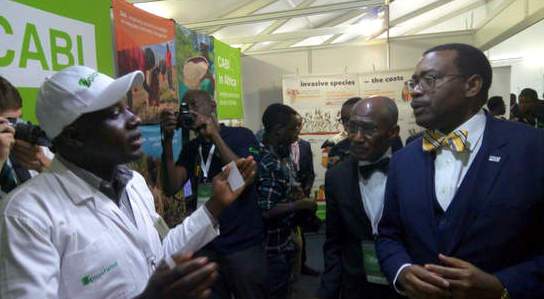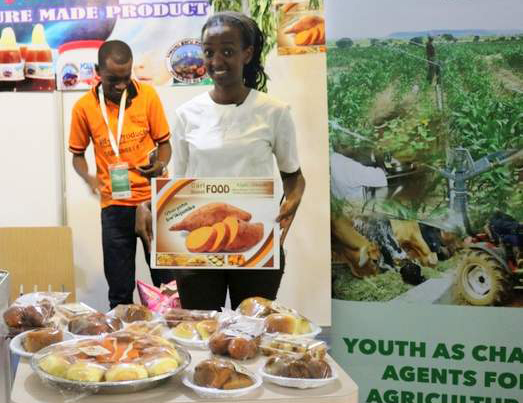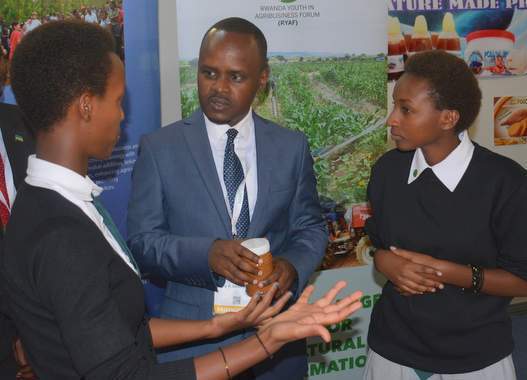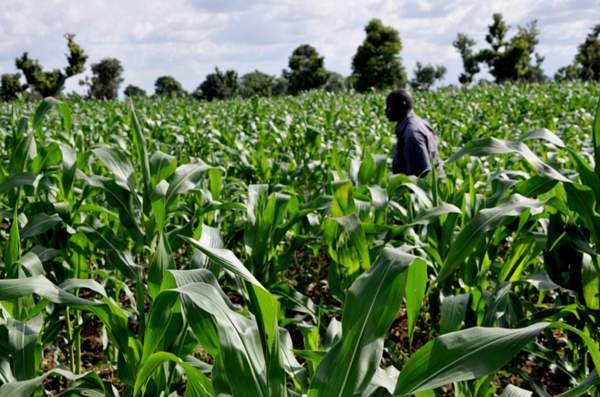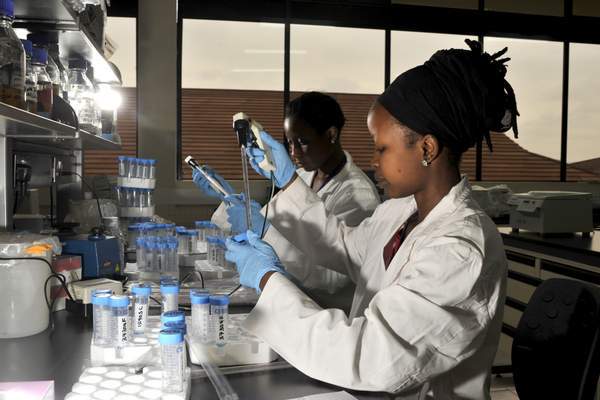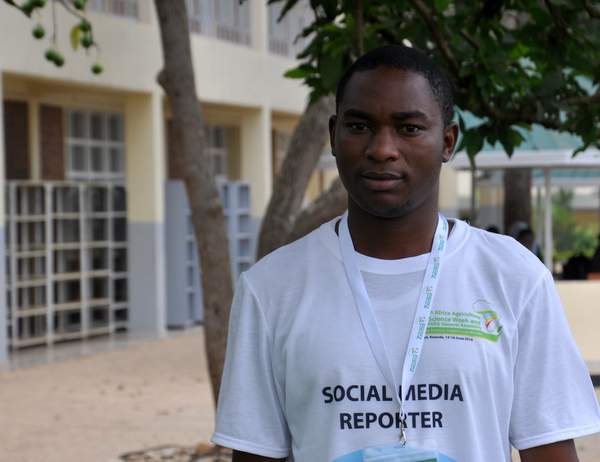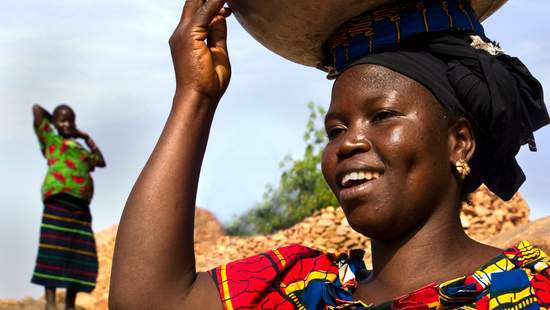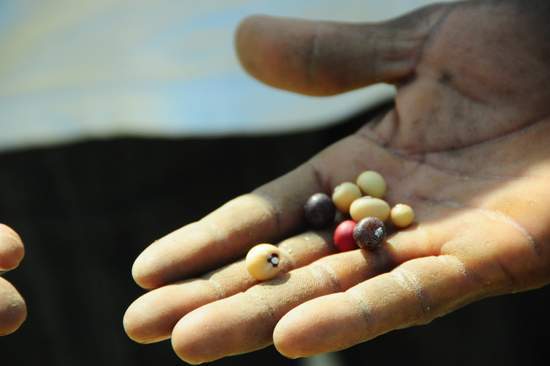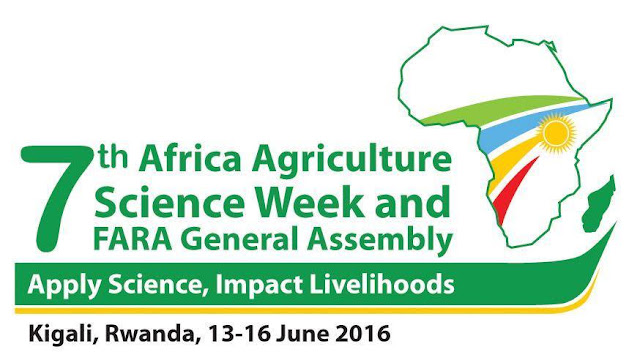The use of science, technology and innovations in the agricultural sector can help farmers to plan or expand their activities while reducing the challenge of climate and weather change. I found that one of most sustainable technologies could be the use of greenhouses.
Saturday 16 July 2016
Technology and innovation as a key to agricultural development in Africa
The use of science, technology and innovations in the agricultural sector can help farmers to plan or expand their activities while reducing the challenge of climate and weather change. I found that one of most sustainable technologies could be the use of greenhouses.
About crops, pests and plant clinics
Some 795 million people in the world do not have enough food to lead a healthy active life. Worldwide,about 40% of crops are lost to pests and diseases. Research has shown that 1% reduction in crop loss could feed millions.
Never too young to engage in agriculture
 Anastase Murekezi, The Prime Minister of Rwanda and Dr Akinwumi Adesina, President of the African Development Bank pose with students from the Gashora Girls’ School, showcasing their products.
Anastase Murekezi, The Prime Minister of Rwanda and Dr Akinwumi Adesina, President of the African Development Bank pose with students from the Gashora Girls’ School, showcasing their products.Young people in any country represent the future. They have a vital role to play the development of their country in by working hard in any field they are involved in, be it teaching, engineering or farming.
Soybean: from words to action
Farmers in a soybean field
Around the world, 2016 was recognized as the international year of legumes. Several legumes promotion initiatives have emerged especially in Africa, to contribute to food security.
Around the world, 2016 was recognized as the international year of legumes. Several legumes promotion initiatives have emerged especially in Africa, to contribute to food security.
No Youth, No Farmers, No Food
“Our youth are not failing the system; the system is failing our youth.”— Rachel Jackson (anno 1800)
Youth unemployment remains one of the biggest hurdles faced by developing African countries, especially those of the Sub-Sahara. So it was encouraging to hear, at the 7th Africa Agriculture Science Week in Kigali, that the African Development Bank will invest in young people interested in agriculture.
More investment could make agriculture the "game-changer"
Africa must work hard to increase agriculture production to reduce poverty and promote economic growth, says Dr Chiji Ojukwu, Director of the Agriculture and Agro-Industry Department, at the African Development Bank (AfDB).
When Nigerian farmers went digital
The application of science and technology has no doubt improved the livelihoods of Nigerian farmers. This is a case study of Nigeria Farmer’s E-wallet System, the first in Africa, which is indeed worth of emulation and implementation by other African nations.
Africa embraces the opportunities
How do we build capacity in agriculture innovation to increase productivity and farm incomes while continuing to develop systems sustainably? That was the topic of a special side event organized as part of the FARA 7th Africa Agriculture Science Week (AASW7) in Kigali.
"Nice vision": Growing Africa's Agribusiness
Agribusiness is the field I find most interesting, exciting, and satisfying. I I have worked diligently to increase my understanding and mastery of this field. I want to help society find answers for serious problems like hunger, food insecurity, poverty and socio-economic development. I want to set a good example for my community and for young people to show that we can become our own bosses, enjoy rewarding careers, and build our economy, if we fully invest in what we have.
Africa needs to reduce it reliance food imports
Dr Akinwumi Adesina, the President of the African Development Bank, visits exhibition booths at the 7th Africa Agriculture Science Week
Agriculture experts are gathered in Kigali, Rwanda to discuss ways how Africa can transform its agriculture into a technology-based sector.
Producing more, naturally
Vermicompost: a natural fertilizer
Crops need fertilizers to grow. Fertilizers, synthetic or organic, increase the quantity of essential nutrients boosting the growth of crops.
Crops need fertilizers to grow. Fertilizers, synthetic or organic, increase the quantity of essential nutrients boosting the growth of crops.
Doctors for farmers
Damien Nsabiyumve explaining the role of “plant doctors” in the “Plantwise” programme
The 7th Africa Agriculture Science Week (AASW7) organized by the Forum for Agriculture Research in Africa (FARA) is took place in Kigali-Rwanda from June 13-16. During this event many companies and organisations attended, and brought their products and services to market and share innovations from different regions.
Cakes with potatoes ?!
"They save lives in Rwanda." Clarisse Murekatete, smile, shows a large hand gesture, donuts and cakes, wrapped in transparent paper and placed on a small table.
Youth and agriculture, why disenchantment continues
In 2008, a food crisis is shaking the world. The food prices experiencing dramatic increases and generates political and social tensions. The "hunger riots" were qualifiers for events around the world by people to scream their despair. This crisis has once understand that good food of people self-sufficiency far from being an empty word must be a reality! A popular saying would not it said that "hungry did ear mark"!
Friday 15 July 2016
Never too young to start an agribusiness!
Sandrine Mukezinka and Ariane Kangabo are young Rwandan innovators and entrepreneurs. When they ate peanut butter for the first time at their high school, they asked the school’s headmaster: “How could we make this? We want to produce this in larger quantities, and sell it!”
Cover the rice Africa ...
Rice is a staple food for millions of Africans and is important for achieving food security. However, in Africa, rice has a yield of less than 1.4 tonnes per hectare compared to the world average of 3.4 tonnes per hectare per year. Thus, the rice is not enough product in Africa to cover all needs.
What if?
Your soil fertility will be affected. You will get cancer. You will die. Better still, you will lose a leg. Well, the last one is pun intended to highlight just a few one liners that you hear when the GMOs discussion ensues. On the other end of the debate are those who push GMOs as the silver bullet for agricultural production and food security in Africa.
What science for African agriculture?
International Research Laboratory breeding Nairobi, managed by ILRI-BecA
"Researchers who seek are found, but the researchers found that one looks in"
This assertion him alone summarizes the perception of citizens about researchers in many countries. Being a researcher is considered, rightly or wrongly as a member of a class of person that works recluse way on subjects which interest is hardly noticeable to the majority of people.
Africa, Agriculture and me
Forgive me if I take African agriculture issues personal…
Africa has 65% of all arable land left in the world. Africa has not only the potential to feed itself, but also to feed the world. But Africa can not eat “potential”. We need to turn Africa’s potential into a reality, keeping in mind that sustainable agriculture is at the very centre of the global development agenda.
The agricultural expertise to Rwandan students
Niyibisys Leon (left) explains to a student how to expose its product
Advise, train and support young people of Rwanda in their creative innovations of Agricultural Sciences, are the challenges that have been launched by teachers of science department and nutrient technologies of the University of Rwanda (UR-CAVM).
Incubating young agripreneurs…
The biggest challenge Africa is facing is its high level of youth unemployment. 60% of of the unemployed in the continent are youth. And youth constitute 40% of the continent’s population.
African countries, institutions and partners are striving to reverse this negative trend, through different programs: Youth in Africa are being mobilized and empowered to grab opportunities. They should become job creators rather than job seekers.
let's be concrete
Despite "the vast agricultural potential that Africa" expression seemed to me more and more "truism" hunger and malnutrition persist on the continent. In 2003, African leaders had pledged to devote 10 percent of their national budget to agriculture "conscious" of its importance in the economic development.
Made in Africa
A lecturer, Head of the mechanization department in the College of Agriculture at University of Rwanda, has found interesting ways to reduce the drudgery often faced by farmers in their various farming and non-farming operations.
Dr. Deepak Das, together with his final year students, have designed innovative machines and equipment which can be used by farmers with a minimum investment on the farmer’s part.
Sunday 29 May 2016
Subscribe to:
Posts (Atom)


